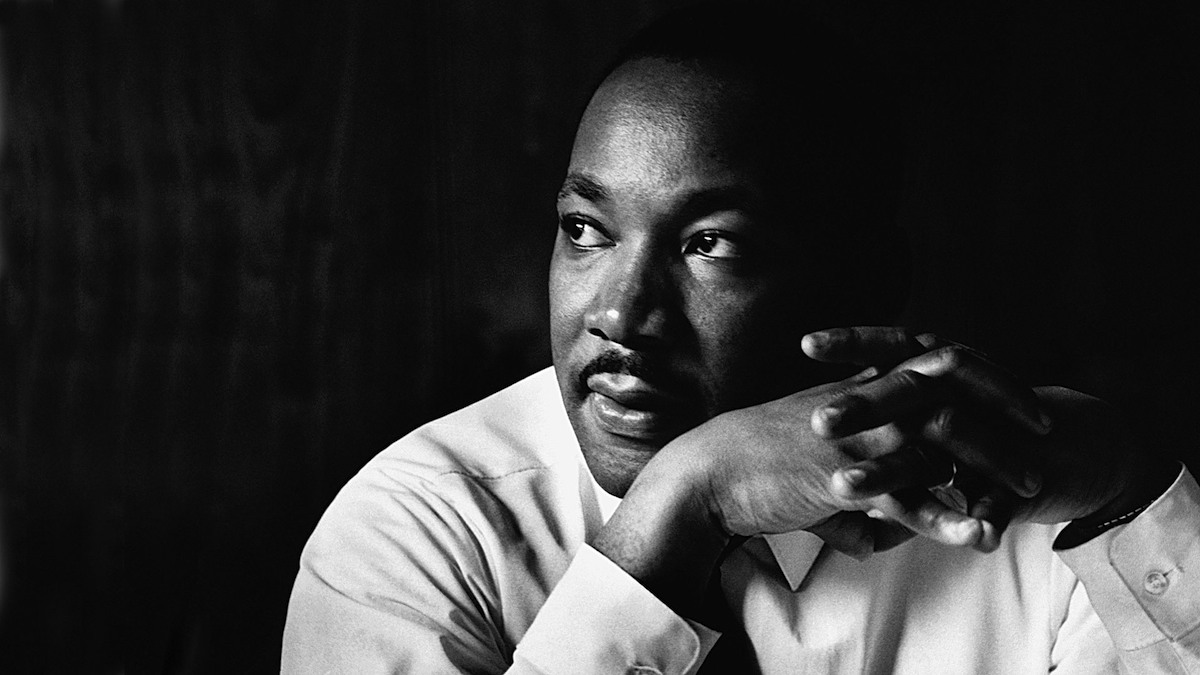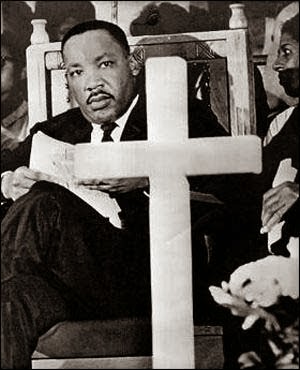
This Easter Sunday marks the brightest dawn the world has ever known paired with the anniversary of one of the darkest evenings America has ever witnessed. Today is the day, some two thousand years ago, when Christ showed Himself to be risen from the dead. It also happens to be the day, fifty-three years ago, on April 4th, 1968, that Martin Luther King, Jr. was shot dead in Memphis. It’s a chance convergence of the civic and liturgical calendars; but there’s something powerful about considering these two momentous events together. Especially since the resurrection account found in Mark is the lectionary Gospel reading for today.
Mark 16:1-8
When the sabbath was over, Mary Magdalene, and Mary the mother of James, and Salome bought spices, so that they might go and anoint him. 2 And very early on the first day of the week, when the sun had risen, they went to the tomb. 3 They had been saying to one another, “Who will roll away the stone for us from the entrance to the tomb?” 4 When they looked up, they saw that the stone, which was very large, had already been rolled back. 5 As they entered the tomb, they saw a young man, dressed in a white robe, sitting on the right side; and they were alarmed. 6 But he said to them, “Do not be alarmed; you are looking for Jesus of Nazareth, who was crucified. He has been raised; he is not here. Look, there is the place they laid him. 7 But go, tell his disciples and Peter that he is going ahead of you to Galilee; there you will see him, just as he told you.” 8 So they went out and fled from the tomb, for terror and amazement had seized them; and they said nothing to anyone, for they were afraid.
Mark, more than any other Gospel, renders Easter full of awe and challenge. He allows the mystery of the resurrection to linger and presents Easter as something truly seismic. In Jesus, God has become flesh. In Jesus, God has been crucified. In Jesus, God has risen again from the dead. If that is anything less than mind-blowing and stupefying, we haven’t yet seen and understood what we are reading.
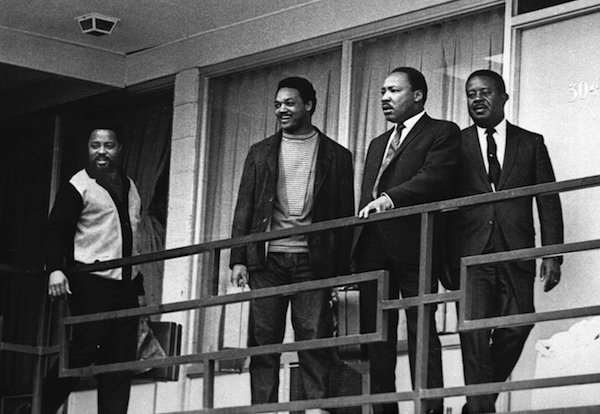
One of the most fascinating about Mark’s truncated Easter story (it’s only 8 verses long) is that it leaves us with what seems like a failure. Throughout his account of Jesus’ life and ministry, Mark unfolds a narrative filled with people who are healed and released and told NOT to tell but go and tell anyway. Now, at the end of Mark’s narrative, when it matters most, the women who come to the tomb are instructed to inform Peter and the other disciples that Jesus is alive and going ahead of them to Galilee; but they are frightened and run away…and so they tell no one. They DON’T TELL what they are supposed to tell. In this way, Mark’s Easter, Mark’s entire Gospel, is a jarring reminder of humanity’s enduring weakness.
And, contradictory as it may seem, this is a message of hope. Because it means that Easter’s triumph doesn’t rest on or turn on us. It involves us, but it isn’t predicated on us. Mark’s telling of the Gospel story is all about what Jesus does, what Jesus accomplishes in the face of human dysfunction and demonic opposition, and how He succeeds IN SPITE OF it all. Mark declares boldly that demons and unclean spirits cannot stand against Jesus, and neither can humanity’s fecklessness. The fear and silence of the women do not prevent Jesus from going on to Galilee.
“Which means our fears, follies, failings; our regrets, our reticence, our relapses – none of it has the final word. There’s hope for us in Jesus… even though we still ignore, silence, and even kill the prophets God sends to us.”
Which means our fears, follies, failings; our regrets, our reticence, our relapses – none of it has the final word. There’s hope for us in Jesus even though (sometimes despite of our best intentions) we still do what we’re NOT supposed to do and don’t do what we ARE supposed to do. Even though we still give into fear. Even though we still ignore, silence, and even kill the prophets God sends to us.
Dr. Martin Luther King, Jr. was one such prophet, a man who was a minister of Jesus’ gospel before he was a civil rights icon. In fact, he was a man who emerged as a champion for civil rights and social justice BECAUSE he was a minister of Jesus’ gospel.
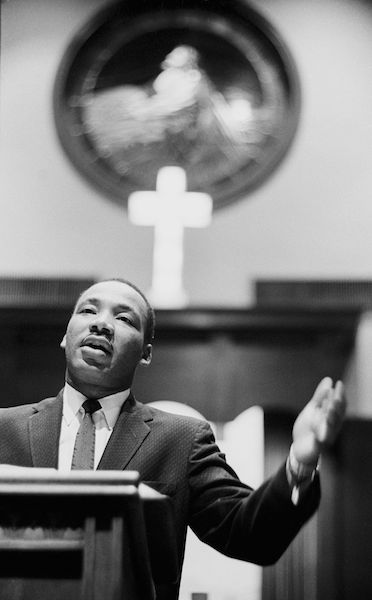
I don’t think we can begin to understand Dr. King’s prophetic activism apart from His faith in Jesus crucified and resurrected, a faith deeply shaped by the awe and mystery of Easter. An Easter like Mark’s Easter that doesn’t simply open the door to one’s personal, individual salvation. An Easter that shakes the very ground beneath our feet. An Easter that leaves us shaken. An Easter in which human fear and silence in the face of God’s radical movement does not stop Jesus from moving forward as He said He would. An Easter that levels the ground upon which we all stand. An Easter that, in the words of the Apostle Paul, means that “There is no longer Jew or Greek, there is no longer slave or free, there is no longer male and female; for all of you are one in Christ Jesus.” (Galatians 3:28)
As I reflect on the legacy and witness of Dr. King’s life, I am convinced that his service and commitment to the causes of justice and brotherhood were fixed firmly in this new Easter reality, even more so than in the principles contained in the Declaration of Independence: that all men – that all people – are created equal and are thus endowed by their Creator with certain unalienable rights. Yes, Dr. King’s dream was deeply rooted in the American Dream. (He said so). And, yes, he was heavily influenced by Mahatma Gandhi and other eastern philosophies.
But while the words of the Founding Fathers served as the mirror Dr. King held up to America and Gandhi’s principles of non-violent resistance formed the basis of his method, it was the life, death, and resurrection of Jesus that served as his model and the inspiration for his work. As Dr. King once proclaimed in a sermon entitled “Love in Action,” Jesus eloquently affirmed from the cross a higher law. He knew that the old an-eye-for-an-eye philosophy would leave everyone blind. He did not seek to overcome evil with evil. He overcame evil with good. Although crucified by hate, he responded with aggressive love. A love so aggressive that it overcame not only the cruelty of the cross but the chasm of the grave. Jesus’ response formed the essence of Dr. King’s response to the evil and cruelty of his time.
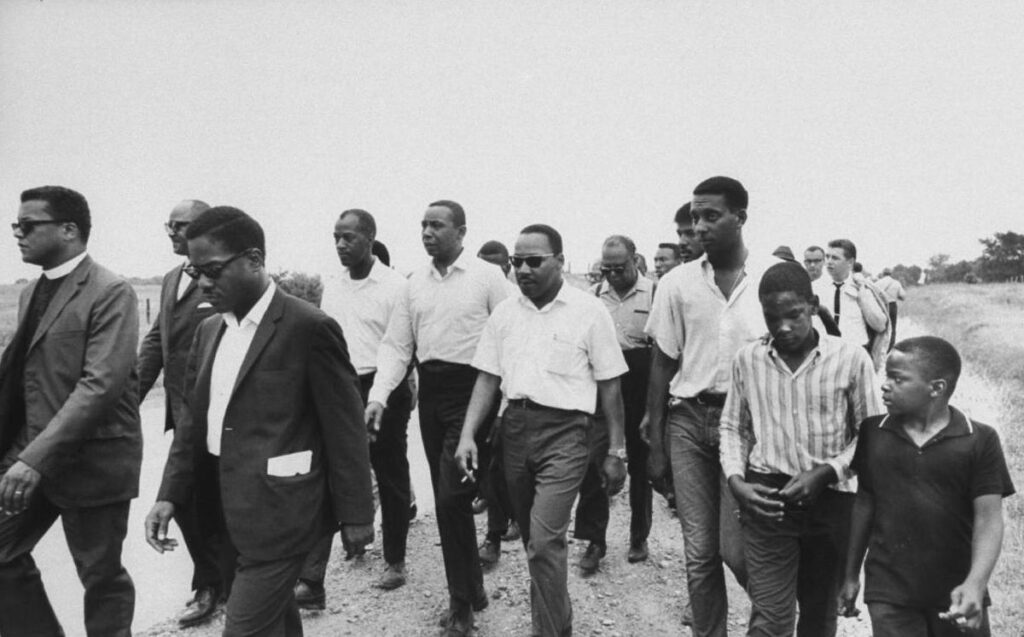
And the key thing is that he – and many others inspired by his example – responded. They didn’t take injustice and inhumanity in stride. They didn’t accept it as given. They knew better. Because of Easter, they knew better. They understood that God stood against evil and cruelty and would stand with them if they stood up and cried out…even if they were trampled down. Even if they, at times, lost their way or made mistakes or suffered setbacks. Because of Easter, they believed the resistance of the powers-that-be, the demonic forces of violence and degradation, would be futile even if they appeared to be unyielding and overwhelming. Because the triumph of the heavenly cause of love, grace, justice, and peace didn’t rest on them. It involved them but wasn’t predicated on them.
“Because of Easter, they believed the resistance of the powers-that-be, the forces of violence and degradation, would be futile even if they appeared to be unyielding and overwhelming.”
And so, I would submit that the earth-shaking, paradigm-shifting spirit of Easter that we read about in Mark’s Gospel not only motivated Dr. King to champion the principles of America’s Declaration of Independence but that it also gave Dr. King (and so many others around him) the courage required to openly challenge at great personal risk the systems, laws, policies, and behaviours that undermined those principles.
This is how Dr. King articulated that hope in another sermon, an early sermon, entitled “The Death of Evil Upon the Seashore.” “The whole history of life is the history of a struggle between good and evil. There seems to be a tension at the very core of the universe. … [Yet] evil is ultimately doomed by the powerful, insurgent forces of good. Good Friday may occupy the throne for a day, but ultimately it must give way to the triumphant beat of the drums of Easter.”
That drumbeat, I believe, kept him going in the face of criticism and in times of immense struggle. That drumbeat helped him keep time to the rhythm of his commitment to non-violent resistance. That drum beat would also later steady him as he expanded his focused challenge to segregation into a wider (and more unpopular) call for economic and social justice. He lost allies over it, but Dr. King rightly understood that eliminating segregation from polices and ordinances would never be enough. The dehumanizing mindset behind segregation had to be rooted out, a mindset that had shaped attitudes, ideologies, markets, neighborhoods, congregations – a mindset that had bled into almost every aspect of American life.
“Dr. King rightly understood that eliminating segregation from polices and ordinances would never be enough. The dehumanizing mindset behind segregation had to be rooted out, a mindset that had shaped attitudes, ideologies, markets, neighborhoods, congregations – a mindset that had bled into almost every aspect of American life.”
Without broad economic, political, theological, cultural, and structural change to accompany statutory change, the semantics of injustice might shift but underlying, lived realities would largely remain the same. As Dr. King pointed out, it would do little good to integrate lunch counters if the newly liberated could not afford to walk in and order a hamburger. That’s why Dr. King championed striking sanitation workers in Memphis as well as bus boycotters in Birmingham. That’s why he challenged the war in Vietnam as well as suppression at the ballot box.
Like the Easter dawn, Dr. King’s vision, conviction, and understanding of justice grew wider with time, grew wider the further he followed the Risen Christ toward Easter’s new paradigm. It grew no matter how hard the work became, or how many losses he and his colleagues experienced. The earth-shaking, paradigm-shifting spirit of Easter anchored his hope and determination. As he told the world when he accepted the Nobel Peace Prize on behalf of the American Civil Rights Movement in 1964:
I refuse to accept despair as the final response to the ambiguities of history. I refuse to accept the idea that the “isness” of man’s present nature makes him morally incapable of reaching up for the eternal “oughtness” that forever confronts him.
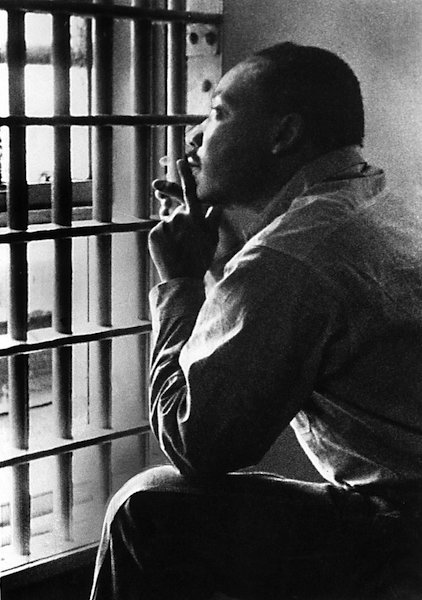
I refuse to accept the idea that man is mere flotsom and jetsom in the river of life, unable to influence the unfolding events which surround him.
I refuse to accept the view that mankind is so tragically bound to the starless midnight of racism and war that the bright daybreak of peace and brotherhood can never become a reality.
I refuse to accept the cynical notion that nation after nation must spiral down a militaristic stairway into the hell of thermonuclear destruction.
I believe that unarmed truth and unconditional love will have the final word in reality. This is why right temporarily defeated is stronger than evil triumphant. I believe that even amid today’s mortar bursts and whining bullets, there is still hope for a brighter tomorrow.”
That depth of belief is what I hope for myself and for all of us who gather to witness and celebrate the miracle and mystery of Easter today. It is my hope and prayer that this convergence between Dr. King’s assassination and Jesus’ resurrection will help us to recognize and deeply reflect upon the radical, earth-shaking, paradigm-shifting good news the Empty Tomb heralds.
“It is my hope and prayer that this convergence between Dr. King’s assassination and Jesus’ resurrection will help us to recognize and deeply reflect upon the radical, earth-shaking, paradigm-shifting good news the Empty Tomb heralds.”
It is my hope and prayer that, in that good news, we will discover the same strength and unwavering conviction that motivated Dr. King. And that like him, we will use it to bravely and unequivocally respond to the cruelty and evil that still lurks in our midst. I hope and pray that, like Dr. King, we will see the potential Easter offers for the here and now, not just for the hereafter– and that we will hear the triumphant drumbeat of Easter summoning us to join the Risen Christ in actively embracing that potential. I hope and pray that we, like Dr. King, will see that Easter offers us both a vision for a better world and the courage to pursue it. Because while the victory is won, the good fight isn’t finished.
Two thousand years after Jesus’ victory, the forces of death and darkness still haven’t admitted defeat. There is still much to do. Many of the gains of Dr. King’s movement in America have been eroded in the past fifty-three years, by passivity and indifference as much as by active resistance and resentment. And much of that passivity and indifference is, of all places, to be seen and found within the church.
If we who worship and proclaim Jesus as the risen Lord will not live and work to make the effects of Easter’s radical good news tangibly felt, who do we expect to?
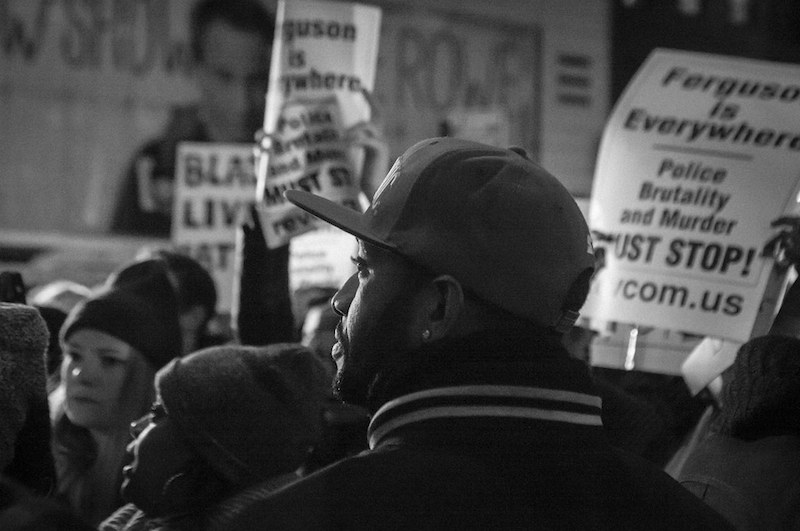
And so, in the spirit of Easter, let us gather the courage to challenge the structural and systemic racism that still plagues America.
In the spirit of Easter, let us gather the courage to challenge the grotesque wage inequality and wealth disparity that funnels far too much money (and with it far too much power) into the hands of far too few.
In the spirit of Easter, let us gather the courage to challenge the militarism that still drives much of America’s foreign policy, and the gun violence that still shatters far too many domestic lives.
In the spirit of Easter, let us gather the courage to champion freer access to the voting booth;
In the spirit of Easter, let us gather the courage to champion access to quality healthcare and education for all who need them, not just those who can afford them;
In the spirit of Easter, let us gather the courage to champion a living wage for any and all American workers because the labourers are worthy of their hire.
In the spirit of Easter, let us gather the courage to champion women’s rights, LGBTQ rights, and immigrant rights because:
Defending people’s equal standing is what it looks like for America to live into the full meaning of its creed, that all people are created equal.
Defending people’s equal standing is what it looks like for American followers of Jesus to show themselves a people of faith for whom there is no longer Jew or Gentile, male and female, slave or free. A people committed to something higher and bigger and deeper than their own personal interests and concerns.
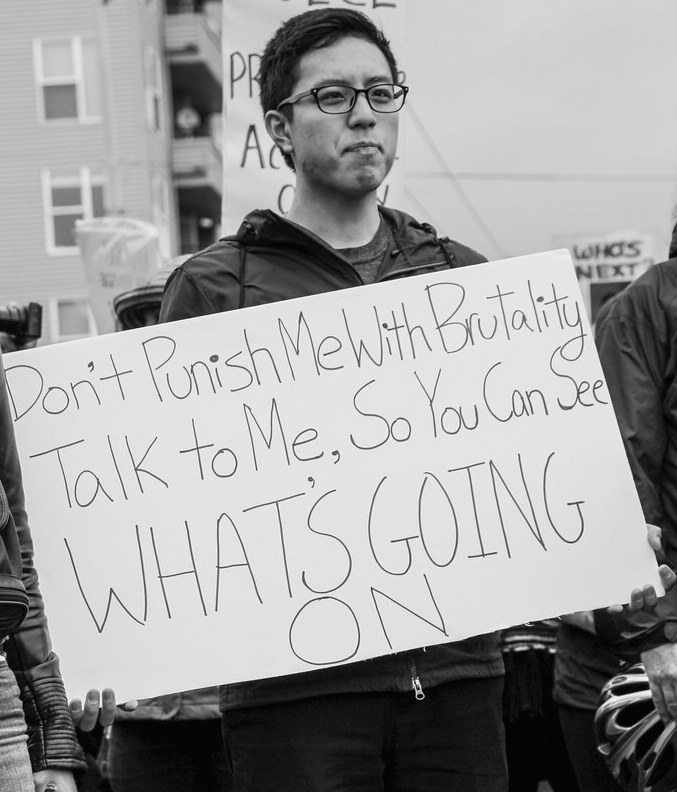
In short, in the spirit of Easter let us gather the courage to do unto others as we would want done unto us – no matter who the others are. Let us strive to love our neighbors as we love ourselves (that is, work for the same outcomes and opportunities for them that we want and expect for ourselves) – no matter who our neighbors are. Because that’s how we show the radical good news of Easter to be tangible. That’s how we live and work for God’s will to be done rather than our own. That’s how we champion the light and challenge the darkness.
And let us begin today by taking bold inspiration from the witness of Dr. King’s life and hope-filled reassurance from the witness of Mark’s Gospel: the story of Jesus triumphing in the face of both human dysfunction and demonic opposition.
The challenges before us are numerous and daunting, it is true. But they are not unassailable. We can – and should – take on these challenges, despite the enormity of the task and the enduring reality of our human weakness. Because Christ is risen. Because Jesus is Emmanuel: God with us, and Easter shows that once and for all. Nothing – not even death – can take Jesus away from us. Nothing – not even death – can separate us from God’s love. Nothing – not even our fear and disobedience – can prevent the Risen Christ from moving ahead to continue His heavenly work of love, grace, justice, and peace.
Easter means that no matter how dark things may seem, there is light just over the horizon. In the new paradigm that Easter establishes, heaven’s dawn breaks; it can never be broken.
So, let the hallelujahs ring out, for Christ is risen. He is risen indeed! And let the drumbeat of Easter set the tempo – starting today – for our determination to let unarmed truth and unconditional love have the final word.
In Jesus’ name.
Amen.



















